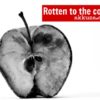Last Saturday’s protest rally in Valletta by Front Harsien ODZ (FHODZ) is being hailed as an historic milestone in Maltese politics. Mike Briguglio listed his own reasons as to why this could be so in his post “Making history from Zonqor to Beyond – the Front phenomenon“. It is precisely the “Front” phenomenon that interests […]






